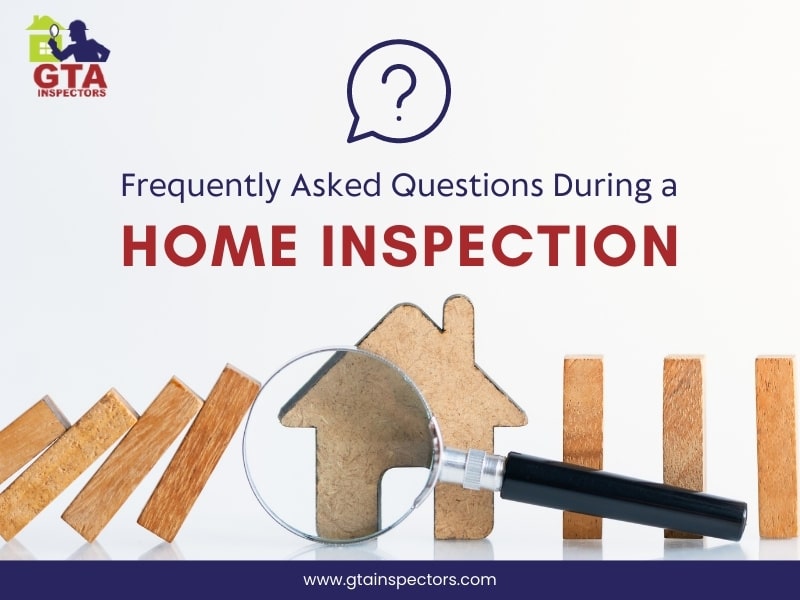|
A home inspection is a process that involves analysis and estimation of the present condition of the property a person is planning to buy. In other words, it is a thoughtful process involving investigations that helps determine the state of affairs of the property's significant systems by employing visual and detailed inspection of on-hand features. It is all directed towards the functioning of the home rather than the fancy codes or designs.
A home inspection becomes crucial for all buyers and sellers since it focuses on identifying the factors that are substantially defective, unsafe, and affecting the property's life and price. Owing to its great importance, Home inspection companies document their home inspection survey in a written report. A property inspection, on average, usually takes 2-4 hours to complete, although it depends on the property's size and state. Once the examination process is completed, the home inspection inspector usually takes 24-48 hours to pen down their property analysis and present to the prospective buyer the details of their observation about their findings with complete proof and visual evidence. But the process doesn't end with only the presentation of the report! Based on the findings documented in the inspection report, it becomes the home inspector's responsibility not only to raise a flag on the problems but also to present the prospective buyer with possible, effective, and efficient solutions. A home inspection usually covers plumbing, heating, central air conditioning systems, roof condition, walls, ceilings, flooring, windows, foundation, basement, and structural aspects. While addressing all these major house systems, there may be some exceptions too. Certain areas of the home may be inaccessible due to some other reasons, such as locked doors, steep roofs, or poor structural integrity. During an inspection, various questions/ queries often come to the mind of buyers. These doubts are well addressed and answered by the home inspection inspectors. Let us hover over some of the frequently asked questions by the buyers during a home inspection. 1. Why do buyers need a home inspection? A home inspection acts as a protection for you as the purchaser of the property. Any abnormal or adverse condition gets best highlighted during the home inspection. It touches on multiple aspects of the home and may even highlight the details that a generic view might miss. It gives you insight into the issues with the home you are planning to buy. These issues may sometimes be critical while sometimes specific minor concerns. Having an overview of the bigger picture helps identify the property's hotspots, which is fruitful for a fair home deal. 2. Is it compulsory for the homebuyers to be present during the property inspection? You being a prospective buyer of a home, it is certainly an excellent thought to be present for a home review, but it is not a compulsion. Your presence at the site will help you understand better the practicality of the situation that the home inspector would identify. There's nothing better than seeing the house condition first hand. Apart from only being a spectator and analyzer of the situation, a home inspection will certainly act as an educational experience of what a review of a property is all about. 3. Is a failed home inspection a possibility? Pros and cons go hand-in-hand. A home inspector is also a human, and human errors are always possible. While the inspection process takes place, it is very much possible that some things might get missed or not deliver professional quality. Therefore, failed home inspection is a possibility but indeed not true for GTA Inspectors. Our well-qualified home inspectors leave no stone unturned in providing qualitative feedback on the property efficiently. 4. What's the next move if a home inspection reveals problems? A perfect house is a myth. And as they say-beauty lies in the eyes of the beholder. Every home has its own narrative of positives and negatives. Therefore, the role of a home inspection becomes all the more relevant, wherein a property inspector will put forward the various issues that he found during the process. If the property you intend to buy has some issues, as stated by the inspection report, you, as a prospective buyer, can either withdraw from the deal or negotiate the deal as per the problems found with the seller. 5. Can a home buyer inspect by himself? A home buyer does not have in-depth knowledge of the details that a licensed home inspector could observe. Conducting a home inspection requires experience and formal training to bring up issues that might get missed from the eyes of a generic spectator. 6. How do you pick up a Home Inspector? Picking the right home inspector is one of the most crucial aspects of going for a home inspection. Only the right person could lead you to the actual scenario and state of the property. Therefore, looking for the right person for a successful home inspection is necessary. So, these were some of the most frequent questions that often cross the minds of home buyers. While undergoing every thought, a primary requirement for a home inspector you enter a contract with is to make sure you connect with a qualified person who deeply understands every minute detail of the inspection. Also, you must be aware of and understand the terms and conditions of the report. Our capable GTA Inspectors not only conduct a successful home inspection but also lend an ear to listen to all your concerns and give clarity on the same. Connect with us to know better!
0 Comments
Once you have signed a contract, if you are willing to counteroffer and save some money, you must get a home inspection done. A home inspection is done after contract signing in most cases. So to counter the offer, you must get a complete inspection done. As a homeowner, if you don't want to end up buying a lemon house. Then a professional home inspection should be taken seriously.
A home inspection helps the buyer find the problems in the house which you cannot spot easily. After a home inspection, many issues are brought to light, such as foundational issues, structural problems, internal mold, and termite infestation. So once the certified property inspection report is in your hands, you can counteroffer to the seller quickly. If you have just signed a contract and are looking for a counteroffer after a home inspection, this blog is for you. What is a Counter Offer? A counteroffer is only applicable after a home inspection is performed. To reopen the negotiations or to opt for repairing major issues spotted after inspection is called a counteroffer. With the help of agents who can negotiate the offer further with the seller, you can counterpart your request. Always be open to the pieces of advice agents give before you counterpart any offer. Get Credits for the Repairs: Counteroffers vary according to the current condition of the property. Before you ask the seller for incentives, you must consider that he is one expecting money by selling the asset. Rather than asking for repairs, you can get the repairs credit. It's a wise choice to get the repairs done by yourself as the seller might take the time or delay them. The seller might expect you to get the minor repairs done. Hence, you can get the credit and quicken the process for minor repairs rather than dangling behind the seller. So while asking for a counteroffer, get the recognition for repairs and save yourself from further drama. Rethinking If the offer is worth it: When there are multiple issues spotted during a home inspection, it can be a real turnoff. If you love the house, then a few repairs can work. But If you plan to repair the house thoroughly, you should rethink the offer. Tearing up and renovating the home can cost you a huge part of your savings. It's better to search for options. Eliminate the conversations about repairs with the sellers and rethink the offer. Buying a property that suits your taste matters. When you are creating the counteroffer, rethink all the priority repairs. If you still have a massive list of problems, go for another option. Rather than wasting time, go for the option with minor repairs. Get the credit for minor maintenance issues and save on future expenses. Consider the Age Factor: Age plays a vital role in listing your counteroffer pointers. During the home inspection, partner with the inspector and pay attention to every property detail. When there are foundational issues, you can quickly get them repaired by the owner. But for the problems of the entire roof renovation, you cannot blame the owner if the house is old. A home built a few years ago with a single owner can easily be countered for repairs, but this cannot happen in the case of an old house. This point should be considered when you search for a property while plotting your counteroffer. After Home Inspection – The Counter Offer While drafting your counteroffer, you must be polite and kind. Keep the agent in the loop about your counteroffer pointers. The seller might reject your deal if the letter comes out harsh. Don't forget to attach the home inspection report with the details highlighted and also mention the estimates drafted by the professionals. Conclusion: A property inspection rarely comes out clear, and minor issues are discovered. Buyers need to get the minor repairs done on their own. You must have a budget you are planning to invest in and choose the property accordingly. Coming to the counter offer, you must consider every point mentioned above and decide. Sometimes when you don't like the house, options are better. |
AuthorWrite something about yourself. No need to be fancy, just an overview. Archives
April 2024
Categories
All
|



 RSS Feed
RSS Feed
